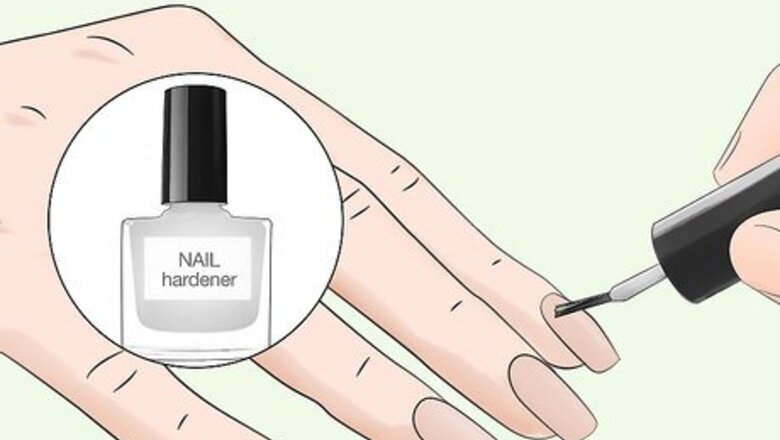
views
Making Your Nails Stronger
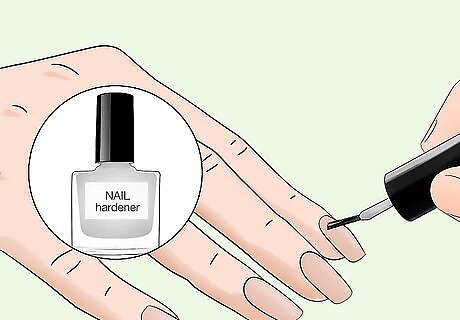
Apply a coat of nail hardener to strengthen your nails. Look in a beauty supply shop for nail hardener, which is a clear, polish-like product. Use the brush applicator to add a coat or 2 of nail hardener to the surface of your nails if they feel especially brittle or damaged. Read the bottle for the recommended drying time before you go out and about. Don’t use nail hardener on a regular basis, as they contain some pretty strong chemicals.
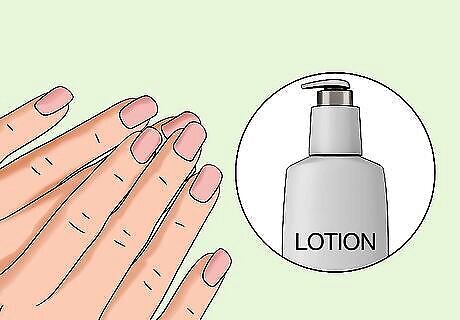
Moisturize your nails and cuticles with lotion on a daily basis. Squeeze out a pea-sized amount of lotion and rub it into your nails and cuticles. Try to get in the habit of moisturizing them regularly, so your nails can become healthier and stronger.
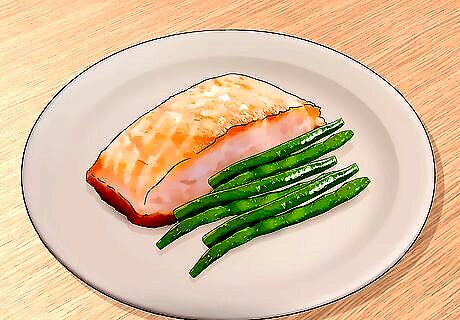
Add healthy, high-quality protein to your diet. Opt for poultry, low-fat dairy, beans, tofu, and fatty fish. Check the nutrition label to see how many grams of protein are in your food, and try to plan your meals with protein in mind. Ideally, eat 0.8 grams (0.028 oz) of protein for every 1 kg (2.2 lb) that you weigh. For instance, if you weigh 180 pounds (82 kg), you need to have 65 grams (2.3 oz) of protein each day. Protein helps nourish and strengthen your nails.
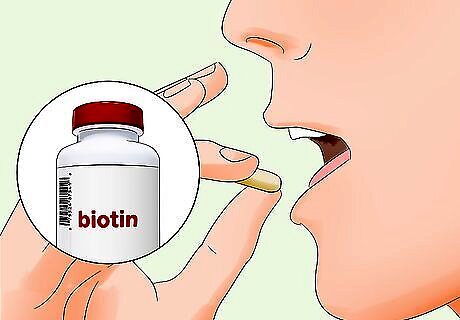
Take biotin supplements. If you have especially brittle nails, ask a healthcare professional if biotin supplements are an option for you. If your doctor recommends it, take the specified dose of supplements as per the product label. You can also try eating biotin-rich foods, like salmon, sunflower seeds, or beef liver. The average dose for biotin supplements is usually between 30 to 100 mcg for teens and adults.
Protecting Your Nails
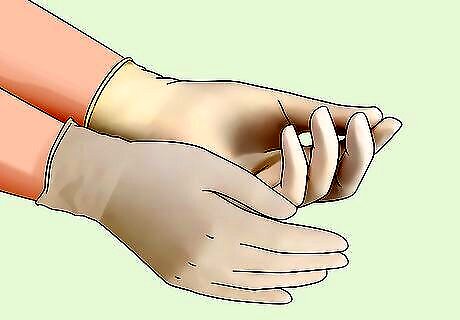
Wear protective gloves when you use cleaning products. Slide on some rubber gloves whenever you do the dishes or do any task that requires harsh cleaning chemicals and soaps. If your nails are in contact with chemicals, your nails may get weaker over time. You can purchase rubber gloves in any place that sells cleaning supplies.
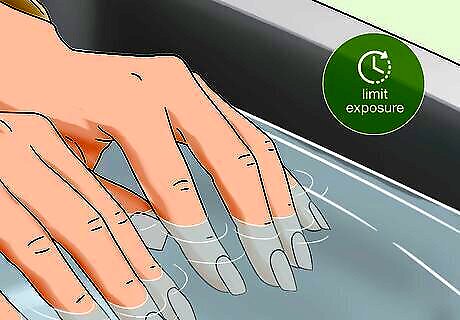
Limit your exposure to water. Don’t soak your nails for long periods of time, like when you’re doing the dishes. If you don’t take the proper precautions, your nails might be more prone to breaking and splitting. There’s nothing wrong with getting your nails wet, but try not to soak them a lot.
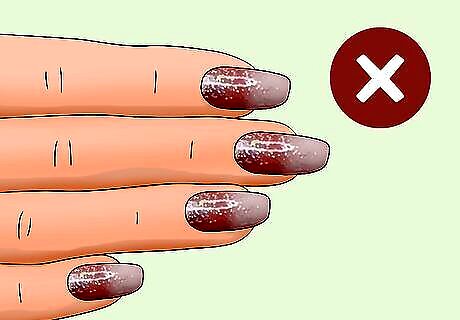
Don’t get acrylic nails. When you get artificial nails, visit certified salons that wash their tools between uses. After your initial appointment, visit in 2-3 weeks for touch-ups. If you like having fake nails a lot, give your natural nails a reprieve after 2-3 months. Give your regular nails some breathing room for several weeks before getting artificial nails again. Fake nails may raise your risk of a nail infection, which makes your nails weaker.
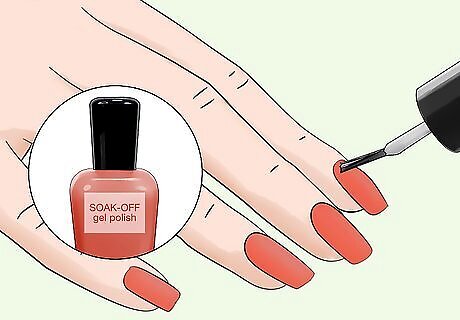
Opt for a soak-off gel manicure if you want to get your nails done. Ask your nail technician if they over soak-off gel nails, instead of a standard gel manicure. They can be really tough on your nails, while soak-off gel offers a little reprieve.
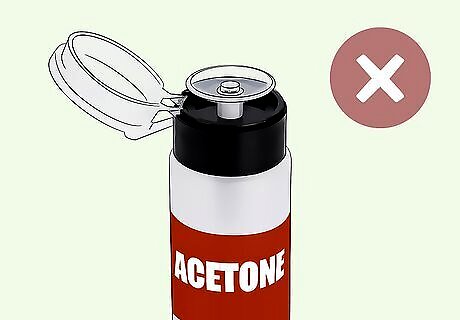
Avoid using harsh nail care products. Try not to use acetone on a regular basis, as it’s very bad for your nails. If you use nail polish on a regular basis, use an acetone-free nail remover instead.
Maintaining Healthy Grooming Habits
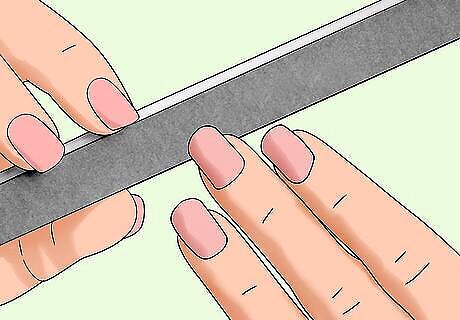
Use an emery board to buff your nails in a consistent direction. Hold the file along the flat portion of your nail to make the edge as smooth as possible. Move it in short, horizontal motions, making sure that you always guide it in the same direction. Avoid moving it back and forth, or else you could make your nails weaker. Try to use a new emery board, as this will be more effective than an older one. You can also use a glass nail file, which is easy on your nails.
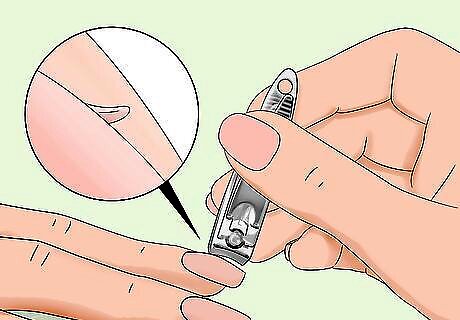
Clip your hangnails so you won’t damage your skin or nail bed. When you rip or tear at your hangnails, you create an open wound, which increases your risk of infection. Instead, use nail clippers to clip along the base of the hangnail. Don’t chew off hangnails. Along with the ripping of your nail or skin, chewing them off transfers bacteria from your mouth directly into the wound. Your nails will be a lot cleaner and stronger when they’re maintained properly.
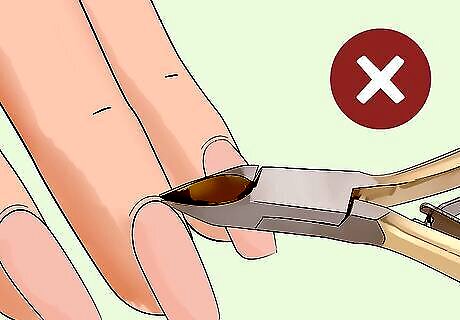
Avoid cutting or picking at your cuticles. Since cuticles protect your nail bed from bacteria, you don’t want to trim or chew them off in any way. When you pick or cut at your cuticles, you increase your risk of infection, which will make your nails much less healthy overall.
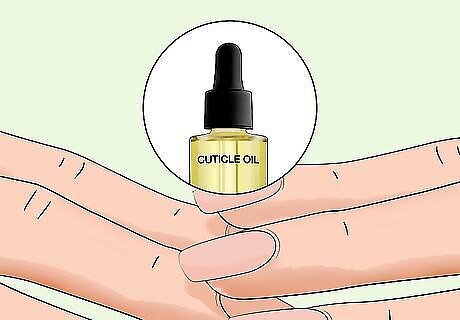
Nourish your cuticles with cuticle oil. Rub a pea-sized amount of oil into each finger, making sure that it completely covers each cuticle. Use your hands to rub the oil into each cuticle. Use this product whenever you paint your nails, as it makes it easier and safer to push your cuticles back. You can also use cuticle oil as a regular moisturizer. You can find it at most beauty stores.
Seeking Medical Care
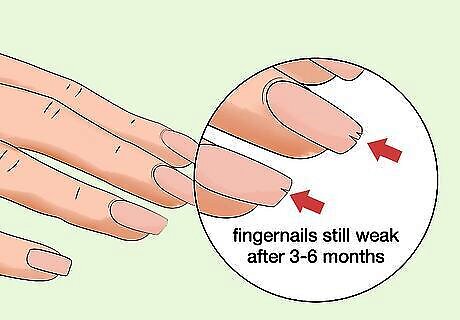
Talk to your dermatologist if your nails don’t improve in 3-6 months. While you likely don’t need to worry, weak fingernails can be a symptom of certain medical conditions. If your nails aren’t improving with home treatments, it may be a sign that you have an underlying condition. See your doctor to find out what’s causing your brittle nails so you can find the right treatment. For instance, hypothyroidism, anemia, and Reynaud’s syndrome can all cause weak nails. Tell your doctor about what you’ve already done to help improve your nails.Tip: A dermatologist is the best kind of doctor to consult with any nail issues.
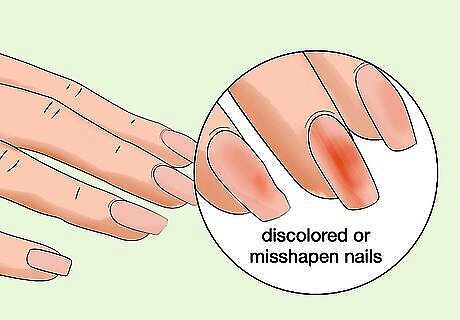
See a dermatologist if your nails change color or shape. Discolored or misshapen nails can signal that something is wrong. You may have an infection or damage to your nails. Let your doctor examine your nails to find out exactly what’s causing your nail symptoms so they can get you the best treatment. If your nails are discolored, curling, or have black streaks, you may want to see a doctor for an official diagnosis and treatment options.
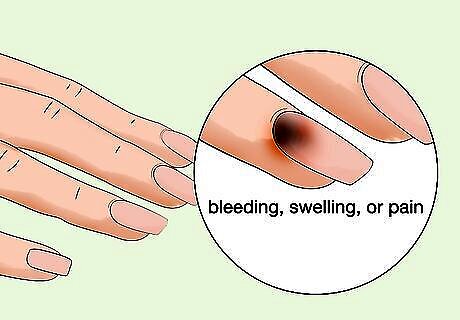
Visit your dermatologist for bleeding, swelling, or pain around your nails. Keep an eye out for these symptoms, as they might be a sign that you have an infection around your nails. Visit a doctor to figure out what’s causing these issues, and so you can figure out the best possible treatment option. You may need an antibiotic to treat the infection. Talk to your doctor about your preference for natural treatment options. They’ll help you use them whenever possible.
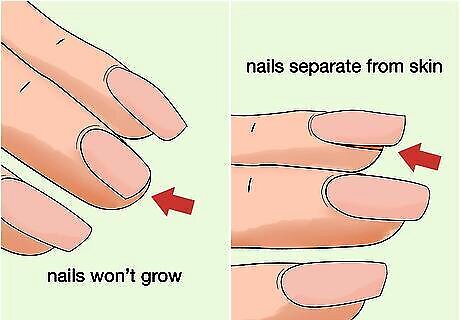
Consult your doctor if your nails won’t grow or separate from your skin. Your nails might stop growing if you have an injury to your nail bed or an underlying condition. Similarly, your nails might separate from your nail bed after an injury or certain infections. See your doctor to figure out what’s causing your nail problems. Once you have an official diagnosis, work with your doctor to figure out the best treatment plan. You may not need treatment if your nail fell off due to an injury. However, it’ll take a while for your nail to grow back.













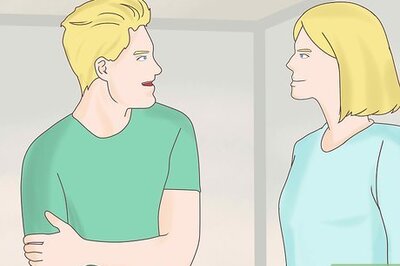





Comments
0 comment